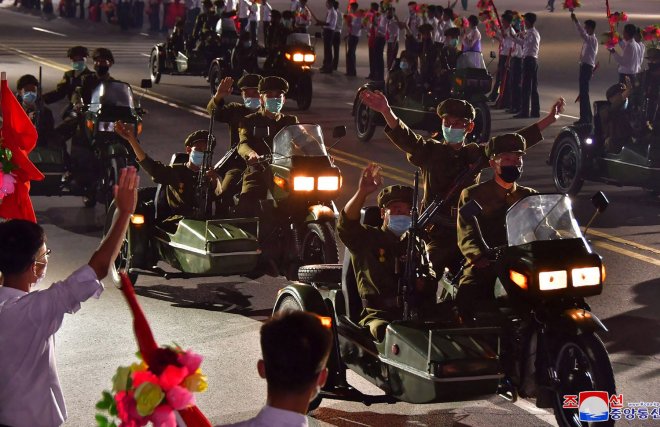
North Korean soldiers beat a middle school student to death for trying to steal gasoline from a military truck, apparently because he was hoping to sell the gasoline to pay for an arbitrary school fee, residents in the country told Radio Free Asia.
The May 4 incident in Tongnam village in the northern province of Ryanggang stems from a common occurrence in the country: North Korea’s cash-strapped government frequently taps students to provide free labor or materials for state projects – or pay some money if they can’t supply what’s asked of them.
In the victim’s school, students were ordered to bring paint and varnish to school for a construction project. But four students couldn’t come up with either those materials or any money, two residents in the province said on condition of anonymity for security reasons.
“They tried to steal the gasoline to get money for school,” one of the residents said. “Students who were unable to donate paint or varnish were instructed to donate 4,000 won [US$0.50] each.”
Varnish and paint are hard to come by in rural areas, she said.
Five soldiers who had stopped in the village for lunch noticed what the boys were doing and began beating them, the two sources said.
“The soldiers were of the 8th General Bureau stationed in Komsan-dong, Hyesan. They were on their way back to the base after delivering food to a sideline military unit in Potae Workers District of Samjiyon,” a second resident said.
“After they realized one of the students had died, they drove off without doing anything for him,” he said.
The three other students fled the scene and were later arrested and police are currently investigating their case, the first resident said
“Where are they supposed to get paints and varnish?” she said. “The students had no way to raise money.”
The soldiers’ fate is not yet known, the resident said.
“Military police of Hyesan City conducted an on-site investigation, but we don’t know what kind of punishment the soldiers were subjected to,” she said.
Translated by Claire Shinyoung Oh Lee. Edited by Eugene Whong.
